As parents to five-year-old twins, a four-year-old, and a 14-month-old, my wife Rachel and I get asked the question “why” multiple times a day. As is the nature of young children interacting with their worlds for the first time, our kids are curious about seemingly every aspect of their existence. The subject matter of their inquiring toddler minds may range from “Why are the Pop-Tarts strawberry?” to “Why does Frankenstein walk like that?” to “Why do we brush our teeth?” followed by “Why do we have to go to sleep now?”
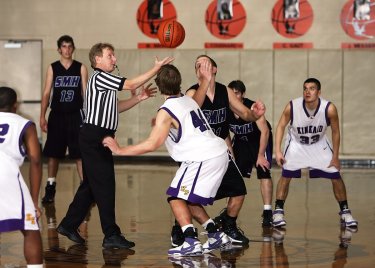
Our kids have genuine questions about events, decisions, and experiences that are affecting their lives, and they’re simply seeking new information to help make sense of their world, especially at it relates to daily life expectations (i.e. brushing teeth, getting dressed, bedtime, etc.). As parents, Rachel and I expect a genuine response from them when we ask, “Why did you draw on the wall?” or “Why does your little brother have a Batman mask on his head?” An answer of “just because” doesn’t suffice as a valid response to their needs. If we have an expectation or make a decision, and the kids want to know why that is, they deserve to know the foundation or standard from which their parents operate. The same firm foundation of standards we set for our family, can also drive our coaching philosophy and decisions we make for our teams.
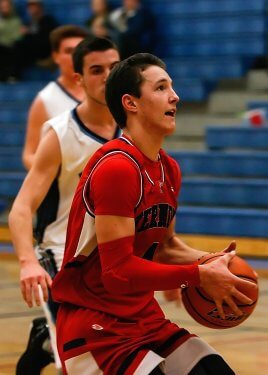
I am blessed to be entering my 18th year of coaching boys’ basketball at Cascade Jr./Sr. High School in Cascade, IA. The first 14 of those years were spent as an assistant to Hall-of-Fame and legendary Coach, and my incomparable mentor, Al Marshall. Cascade has long been considered one of the top 2A programs in Iowa, going back 50 years, a program known for fundamentals, staunch defense, and attention to detail. Being a rural, public school, our athletic talent pool rises and falls and varies greatly year to year. Despite the variance in the size, speed, athleticism, and skill of our kids in Cascade through the years, we consistently compete and maximize our talent. We’ve been fortunate to win several conference titles, district titles, and make several state tournaments during my tenure as well. Our program even reached a hallowed milestone by winning our first-ever state championship in 2018.
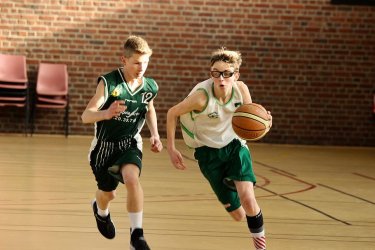
Of the myriad lessons and coaching bits of wisdom that Coach Marshall has imparted on me, perhaps the most important and central to our consistent success is a philosophy we call Basketball Decisions and Non-Negotiable Fundamentals. Basketball Decisions are choices we make regarding our program that stem from the underlying premise: What is best for our basketball team and/or program, and how do we get there? In other words, we make decisions that will, in our best judgment, improve our chances for success as a team. If anyone were to ask the proverbial why as to any team-effecting choice we make, we have a consistent, integral foundation to stand on. Just as “because…” doesn’t suffice for explaining bedtime, nor should it suffice for determining why we changed the starting line-up.
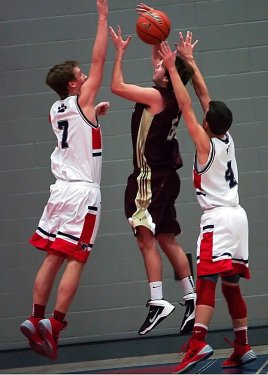
Determining what ultimately is best for a team can be a challenging proposition. Thus, making the tough decisions-of who plays, who sits, or what offense we run-poses perhaps an even higher level of difficulty, but is ultimately a coach’s job. As a coach, we are tasked with deploying line-ups and strategies that will maximize our team’s strengths, minimize weaknesses, and provide the highest rate of success and improvement. How do we determine what is best with as much integrity as possible?
At Cascade High, we have established a core foundation we call Non-Negotiable Fundamentals. The Non-Negotiable Fundamentals are standards by which we prepare and compete. They identify the qualities and skills that both players and coaches must possess to execute key skills and to function at a high level (Table 1).
Table 1: Non-Negotiable Fundamentals
|
Be Engaged: What’s Important Now |
We want to focus on the present action and what’s within our immediate control. Being intentionally focused allows us to act more purposefully. |
|
Be Focused: Next Best Action |
Regardless of the immediate event and its outcome, whether success or failure, our minds must be locked in on the next correct action to take. |
|
Have Energy/Have Fun |
Players and coaches alike must bring energy, enthusiasm, and joy daily to preparation and competition. Positive enthusiasm creates resiliency and a culture of improvement. |
|
Know Why We Are Here: To Get Better |
Players and coaches must possess a mindset of improvement, every day, every play, every rep. All decisions and behaviors must be improvement-driven. |
|
Respond to Mistakes and Coaching |
Improvement occurs by consistently adjusting and adapting to mistakes. Players and coaches must respond to mistakes by identifying them, correcting them, and changing behaviors to improve performance. |
|
Coaches Explain How Everything Fits |
Our coaching staff must clearly articulate how each aspect of our preparation translates to success in competition. We want players to know and “see” how current actions will lead to a chance of success. |
| Coaches Adapt | Our coaching staff must be willing and able to adapt to the current needs of our team: What’s going well? What’s not working today? Coaches must be willing to change, for improvement’s sake, when the reality suggests we should. |
The Non-Negotiable Fundamentals provide clear expectations for our staff and players in relation to how we plan to prepare and operate on a daily basis. When players, or coaches, deviate from these fundamental concepts and expectations, we have a common language of correction. More importantly, adhering to fundamentals will ensure the necessary by-product of improvement, both individually and collectively. In addition to practice and preparation, we have established specific offensive and defensive Non-Negotiables that, regardless of athleticism or talent, we feel all our players must adhere to on offense (Table 2) and defense (Table 3).
Table 2: Examples of Non-Negotiables in Basketball for Offense
| No Turnovers | Turnovers are the most detrimental outcome for the offense. We must learn to operate fundamentally with the ball while maximizing our ability to make quick decisions with it. |
| Ball Movement | Quick, efficient passing and purposeful dribbling are the best way to create player movement and cause defensive breakdowns. We never want the ball “to stick.” |
| Player Movement | All 5 players are “playing” offense regardless of where the ball is located. We want continuous action that the defense must respond to. No “ball-watching.” |
| Spacing Principles | Ball and player movement is necessary to create optimal spacing. The creation and balance of space lead to the highest probability of being able to take and make shots we desire. |
| Shot Selection | To maximize ball movement and player movement to obtain a great shot every possession. A “great shot” is one that is open, within the principles of our offense, and that everyone expects the shooter to make. No “forced shots.” |
| Shot Allocation | We want the correct players shooting the correct great shots. Players with the highest probability of making certain shots should have the greatest distribution of those shots. |
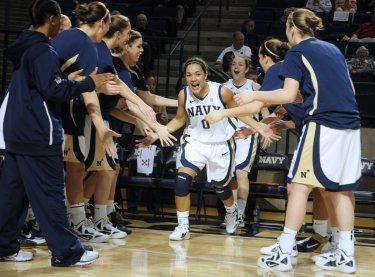
Table 3: Examples of Non-Negotiables in Basketball for Defense
|
Get Back |
The first requisite to great defense is the immediate mental and physical transition to a defensive mindset immediately as the offensive possession has ended. As soon as the ball changes hands, our focus and all actions must be on preventing a score. |
|
Compete with Multiple Efforts |
All 5 players are always competing on defense, regardless of where the ball is. We believe that great defense consists of multiple, collective efforts for the entirety of the possession. |
|
Compete in a Stance |
Great defense starts with an athletic, ready stance. |
|
Compete With High, Active Hands |
Great defenders have high, active hands ready to cover space and make plays. |
|
Compete With Active, “Ready” Feet |
Great defenders have active feet that are constantly ready to move. |
|
Move on the Flight of the Ball |
Great defenders move and cover space immediately as the ball moves on offense. |
|
Communicate/ Be Engaged |
Great defense must be in constant communication with one another each possession. We communication increases engagement and effort. |
|
Guard “Players” |
Not all offensive players can equally score. We must know who can play and who can hurt us and allocate our energy and effort accordingly. |
Regardless of the personnel on the floor, the expectations for how we will play are rooted in these standards. As a result, we can make the best Basketball Decisions relative to these expectations.
By implementing our philosophy of Basketball Decisions predicated on Non-Negotiable Fundamentals, we have the best chance to maximize improvement for each player and ultimately our team. In addition, this approach has provided a level of communication and transparency for all stakeholders (i.e. players, parents, community) in our program. And, just like when our children disagree with us on bedtime, our stakeholders will disagree with certain decisions we make regarding our team. However, through clear expectations and clear standards, all of our Basketball Decisions should reveal, to everyone, our strong belief in our Non-Negotiable Fundamentals as a means to guide us towards success on the court.

Wonderful and thorough article Jacob – been using non-negotiables for a long time now but your explanation of how and why you use it is layed out great. Thanks and I would love to incorporate these into my program to to round out my non-negotiables.
Thanks!